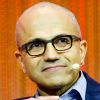10 Poverty Books That Reveal Hidden Truths and Solutions
Recommended by Bill Gates, Satya Nadella, and Lydia Polgreen for deep insights on Poverty Books and social inequality





What if the stories you've heard about poverty barely scratch the surface? Poverty isn't just about numbers—it's about human lives tangled in complex webs of housing, education, and social injustice. Right now, as economic disparities widen globally and locally, understanding these layers is more urgent than ever.
Experts like Bill Gates, co-founder of Microsoft and a major voice on global health and development, have praised works like Evicted for revealing poverty's harsh realities through vivid storytelling. Meanwhile, Satya Nadella, CEO of Microsoft, emphasizes the need to grasp systemic causes of poverty beyond surface-level fixes. And Lydia Polgreen, former Editor in Chief of HuffPost, highlights Invisible Child for its intimate portrait of urban poverty's human toll.
While these expert-curated books provide proven frameworks and narratives, readers seeking content tailored to their specific interests—whether it's urban poverty, policy impacts, or education reform—might consider creating a personalized Poverty book that builds on these insights for a deeper, more relevant learning experience.
Recommended by Lydia Polgreen
Editor in Chief of HuffPost
“I am lucky enough to be reading a galley of Andrea Elliott's remarkable new book. Read this remarkable piece to get a sense of its power and resonance.” (from X)
by Andrea Elliott··You?
by Andrea Elliott··You?
When Pulitzer-winning journalist Andrea Elliott reexamined poverty through the life of Dasani, a girl navigating Brooklyn's homeless shelters, she challenged conventional views of poverty as mere statistics. You gain intimate insight into systemic challenges: structural racism, housing insecurity, and the emotional toll on families. Elliott’s detailed narrative, especially in chapters on Dasani's struggle to balance family loyalty with personal growth, offers a raw, human perspective. If you seek a vivid understanding of urban poverty’s complexities beyond policy debates, this book brings those realities to life.
Recommended by Bill Gates
Co-Founder & Former Microsoft CEO
“This book gave me a better sense of what it is like to be very poor in this country than anything else I have read. It is beautifully written, thought-provoking, and unforgettable.”
by Matthew Desmond··You?
by Matthew Desmond··You?
What if everything you thought about poverty ignored the brutal struggle of keeping a home? Matthew Desmond, a Princeton sociologist, digs deep into the lives of eight Milwaukee families facing eviction, revealing how housing instability traps people in cycles of poverty. You’ll gain a clear-eyed understanding of how eviction isn’t just a consequence but often a cause of poverty, backed by vivid storytelling and rigorous research. Chapters detail personal stories alongside systemic forces, helping you grasp the intersection of housing policy and economic exploitation. This book suits anyone seeking to understand poverty’s human side beyond statistics, especially policy makers, social workers, and concerned citizens.
by TailoredRead AI·
This tailored book on urban poverty provides an in-depth exploration of the complex dynamics shaping hardships in city environments. It offers a personalized framework that examines systemic challenges such as housing instability, social inequality, and community resilience, adjusting to your specific urban context or professional focus. Methodologies covered include qualitative case studies, policy analysis, and community engagement strategies, enabling you to understand nuanced social structures and intervention outcomes. The tailored approach cuts through generic advice to fit your context, emphasizing real-world applications of urban poverty research and fostering insights into grassroots solutions and institutional responses.
Recommended by A Devoted Yogi
Ayurvedic living and longevity enthusiast
“Please watch, retweet and/or favorite this worthy and worthwhile YouTube video: Thomas Sowell is Back Again to Discuss His Book Wealth, Poverty, and Politics” (from X)
by Thomas Sowell··You?
by Thomas Sowell··You?
Drawing from decades as a senior fellow at Stanford's Hoover Institution, Thomas Sowell challenges common narratives about income inequality and poverty in America. You gain a nuanced grasp of how wealth production—shaped by factors like geography, demography, and culture—drives economic disparities beyond mere wealth distribution debates. For example, Sowell critiques popular interpretations by economists such as Piketty and Krugman, offering data-driven perspectives that question welfare-state justifications. This book suits anyone eager to rethink poverty through empirical evidence rather than partisan rhetoric, though those seeking prescriptive policies may find its approach more analytical than directive.
Recommended by Sydette @ Ord Camp
Civic Media Innovation Fellow at Annenberg Lab
“This is always a great piece to read also an amazing book” (from X)
by Anthony Abraham Jack··You?
by Anthony Abraham Jack··You?
When Anthony Abraham Jack first discovered the persistent struggles faced by disadvantaged students at elite colleges, he set out to explore why admission alone doesn't guarantee acceptance or success. Drawing from interviews at a prestigious university and his own experiences, the book reveals how institutional policies and campus culture compound inequalities for students from less privileged backgrounds. You learn about the distinct challenges faced by those from elite private versus troubled public high schools, and the ways colleges can rethink their support systems. This book benefits anyone interested in higher education reform, social equity, or the nuanced realities behind college diversity efforts.
by Mark Robert Rank, Lawrence M. Eppard, Heather E. Bullock··You?
by Mark Robert Rank, Lawrence M. Eppard, Heather E. Bullock··You?
Mark Robert Rank, the Herbert S. Hadley Professor of Social Welfare at Washington University in St. Louis, brings decades of expertise on poverty, inequality, and social justice to this examination of American poverty myths. Drawing from extensive research, the authors dismantle common stereotypes, revealing that poverty affects a majority of Americans and is often beyond individual control. You’ll gain a clearer understanding of why hard work doesn’t always translate to economic success and how media-driven misinformation perpetuates false narratives. The book is particularly insightful for social scientists, policymakers, and anyone seeking a more nuanced grasp of poverty’s realities in America.
by TailoredRead AI·
by TailoredRead AI·
This personalized book explores the socioeconomic barriers that influence higher education access, focusing on how poverty shapes college opportunities. It provides a tailored framework analyzing systemic inequalities, financial obstacles, and institutional policies that affect marginalized students. By integrating educational theory with socioeconomic data, it addresses the nuanced challenges specific to various demographics and regions. The book offers a methodical approach to understanding the interplay between poverty and education, presenting strategies for overcoming access gaps. This tailored approach cuts through generic advice, fitting your specific context to illuminate pathways for enhancing college access among underprivileged populations.
Recommended by Marc Alain Boucicault
Economist and ecosystem builder
““The Prosperity Paradox: How Innovation Can Lift Nations Out of Poverty.” What an amazing book! I am still reading through it but every page is provoking a pulse of AMEN! EVERY public/private decision maker should read this book! Especially in Haiti.” (from X)
by Clayton M Christensen, Efosa Ojomo, Karen Dillon··You?
by Clayton M Christensen, Efosa Ojomo, Karen Dillon··You?
Unlike most poverty books that focus on aid and top-down interventions, this one unpacks why such efforts often fail and proposes a fresh approach centered on market-creating innovation. Drawing on Clayton Christensen's expertise in disruptive innovation, it explores how entrepreneurship can build sustainable economies rather than temporary fixes. You’ll find detailed case studies from diverse countries and industries, like how affordable sewing machines and cars sparked growth in unexpected places. If you’re interested in economic development that lasts beyond charity, this book gives you frameworks to understand and foster real prosperity.
Recommended by Andrew Adonis
Labour peer and former UK Transport Secretary
“George Orwell would have loved this book. It echoes Down and Out in London and Paris and The Road to Wigan Pier. It is heartrending in its life story and its account of family breakdown and poverty. But by the end there is not a scintilla of self-pity and a huge amount of optimism. It made me see the country and its social condition in a new light.”
by Darren McGarvey··You?
by Darren McGarvey··You?
Drawing from his experience as a community activist and former rapper-in-residence at Police Scotland’s Violence Reduction Unit, Darren McGarvey offers a raw and insightful look into the realities of Britain's underclass. You learn not just about poverty's economic impacts but its emotional and cultural dimensions, including anger, exclusion, and identity struggles. For example, McGarvey challenges typical political narratives on poverty, revealing how both left and right miss the lived experience of deprivation and its link to social divisions. This book benefits anyone seeking to understand the roots of social unrest, inequality, and the nuanced human stories behind statistics, especially in the UK context.
Recommended by Barack Obama
44th U.S. President
“A single mother's personal, unflinching look at America's class divide, a description of the tightrope many families walk just to get by, and a reminder of the dignity of all work.”
by Stephanie Land, Barbara Ehrenreich··You?
by Stephanie Land, Barbara Ehrenreich··You?
When Stephanie Land first discovered the harsh realities of poverty through her own experience as a maid and single mother, she set out to tell the untold stories of America's working poor. In Maid, you gain insight into the daily struggles of balancing low-wage work, government assistance, and pursuing education while raising a child alone. Land's chapters vividly illustrate the emotional and financial tightrope walked by many, exposing the stigma and systemic challenges faced by people just trying to get by. If you want a grounded, empathetic look at poverty from the inside, this memoir offers candid reflection without sugarcoating or abstraction.
Recommended by Ronald Sider
President, Evangelicals for Social Action
“What an opportunity evangelicals have to make a difference in our world through the church. Corbett and Fikkert build on the growing momentum of holistic witness that's sweeping our country and globe and are eminently qualified and positioned to take motivated kingdom citizens on a Christ-centered and comprehensive journey that will pay huge dividends for impoverished people and for Christians in our broken world.”
by Steve Corbett, Brian Fikkert, John Perkins, David Platt··You?
by Steve Corbett, Brian Fikkert, John Perkins, David Platt··You?
When Steve Corbett, drawing from his extensive background in community development and international relief, recognized that many poverty interventions inadvertently cause harm, he co-authored this book to address those complexities. You’ll gain insight into why poverty is not just a lack of resources but involves relational and systemic issues, and how well-intentioned aid can undermine dignity and sustainability. The book offers frameworks for empowering the poor from within their communities, emphasizing long-term transformation over temporary fixes. If you're involved in social work, church ministries, or development economics, this book challenges common assumptions and equips you to approach poverty with greater effectiveness and empathy.
Recommended by Albert Wenger
Managing Partner at Union Square Ventures
“A fantastic introduction to UBI that's both thorough and accessible.”
by Annie Lowrey··You?
When Annie Lowrey first realized the range of experiments with universal basic income (UBI) across the globe, she saw a new lens to understand poverty and economic security. Drawing from her deep experience as a journalist covering economic policy for The Atlantic and other major outlets, she investigates how UBI could alter work, welfare, and inequality. You’ll learn about pilot programs from Kenya to Finland, the challenges of political acceptance, and how technology-driven job displacement factors into the debate. This book suits anyone interested in social policy, economics, or the future of work who wants grounded insights beyond ideological rhetoric.
Get Your Personal Poverty Strategy in 10 Minutes ✨
Stop sifting through generic advice. Receive targeted poverty insights tailored to your needs—fast and focused.
Join 15,000+ Poverty enthusiasts who've personalized their approach
Conclusion
Together, these 10 books offer a mosaic of poverty’s many facets—from the eviction crises gripping American cities to the hidden struggles of students at elite universities, and from myth-busting economic analyses to personal memoirs of hardship. If you're grappling with housing instability, start with Evicted to ground your understanding. For those focused on education equity, The Privileged Poor provides a unique lens.
For rapid implementation of fresh ideas, combine The Prosperity Paradox's innovation strategies with When Helping Hurts's guidance on effective aid. And if you're curious about policy futures, Give People Money opens up the universal basic income debate.
Once you've absorbed these expert insights, create a personalized Poverty book to bridge the gap between general principles and your specific situation. Dive deeper, focus sharper, and act smarter with a tailored approach to understanding poverty.
Frequently Asked Questions
I'm overwhelmed by choice – which book should I start with?
Start with Invisible Child for a powerful, human-focused story of urban poverty that sets the stage for understanding broader issues. It's vivid and deeply reported, giving you a strong emotional and factual foundation.
Are these books too advanced for someone new to poverty studies?
Not at all. Many of these books, like Maid and Poverty Safari, are accessible memoirs and narratives that introduce poverty's realities without jargon, making them great for newcomers seeking empathy and understanding.
What's the best order to read these books?
Begin with personal narratives like Invisible Child and Maid to connect emotionally. Then explore analytical works such as Wealth, Poverty and Politics and Poorly Understood. Finally, dive into policy and solutions-focused books like The Prosperity Paradox and Give People Money.
Do I really need to read all of these, or can I just pick one?
Each book offers unique insights, but reading multiple titles will give you a richer, multifaceted understanding of poverty. However, feel free to focus on the books most aligned with your interests or challenges.
Which books focus more on theory vs. practical application?
Wealth, Poverty and Politics and Poorly Understood lean toward theory and analysis, while When Helping Hurts and The Prosperity Paradox emphasize practical frameworks for poverty alleviation and innovation.
How can I apply these general poverty insights to my specific context or profession?
Great question! While these expert books provide broad knowledge, you can create a personalized Poverty book tailored to your profession, education level, and goals. This way, you get focused insights that complement the expert recommendations and help you take relevant action.
📚 Love this book list?
Help fellow book lovers discover great books, share this curated list with others!
Related Articles You May Like
Explore more curated book recommendations









